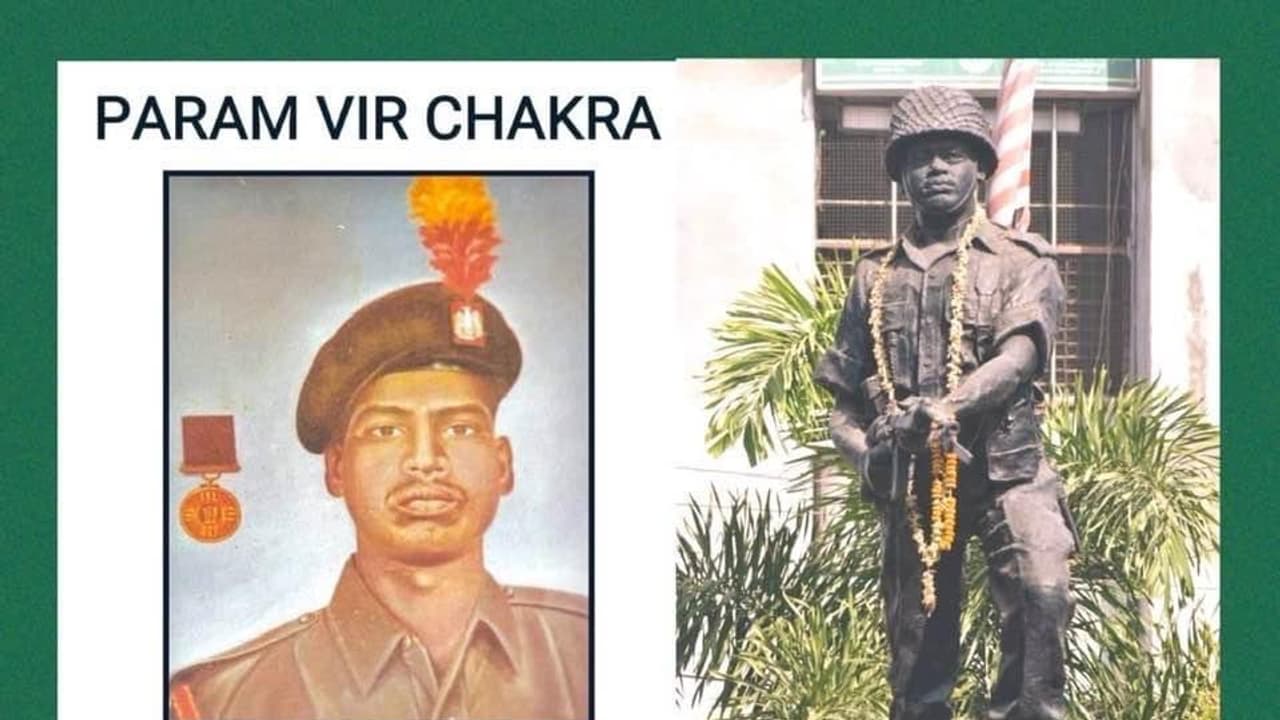Lance Naik Albert Ekka’s heroics in Gangasagar during the 1971 Bangladesh Liberation War remain etched in India’s military history.
Lance Naik Albert Ekka’s heroics in Gangasagar during the 1971 Bangladesh Liberation War remain etched in India’s military history. Awarded the Param Vir Chakra, India’s highest gallantry honor, his courage exemplified the spirit of a soldier who embraced the nation at the cost of his life.
Born on December 27, 1942, into an Oraon Christian family in Zari village, modern-day Jharkhand, Albert’s childhood was steeped in the rugged rhythms of rural life. Hunting with bow and arrow honed his skills and athleticism, preparing him for the military life.
At the age of 20, he enlisted in the Bihar Regiment and, in 1968, transferred to the 14 Guards, initially engaged in counterinsurgency operations in Northeast India. With the outbreak of the 1971 war, his unit was deployed to the battlefront in erstwhile East Pakistan (now Bangladesh).
On December 3, 1971, his battalion was tasked with capturing Gangasagar, a key Pakistani stronghold just 6.5 km west of Agartala, the capital of modern-day Tripura. Securing Gangasagar was pivotal to India’s advance towards Akhaura, another strategic town, and would pave the way for the eventual march to Dhaka.
Two companies of the 14 Guards spearheaded the assault on the Gangasagar railway station, navigating a battlefield riddled with mines, wires, and entrenched enemy defenses. “The main (enemy) defences were based on the high ground around the railway station and the built-up area. The surrounding marshy area and the few remaining areas were heavily mined with anti-tank and anti-personnel mines. The main defences were also extensively wired,” explains Colonel V Ganapathy, senior fellow at the Centre for Land Warfare Studies.
Under a hail of machine-gun fire and in the midst of hand-to-hand combat, Lance Naik Albert Ekka spotted a Pakistani light machine-gun decimating Indian forces. The official Param Vir Chakra citation captures his unparalleled bravery, “With complete disregard for his personal safety, he charged the enemy bunker, bayoneted two enemy soldiers and silenced the LMG. Though seriously wounded in this encounter, he continued to fight alongside his comrades through the mile-deep objective, clearing bunker after bunker with undaunted courage.”
Even when faced with a medium machine-gun firing from a fortified building, he pressed on, “Once again, this gallant soldier, without a thought for his personal safety, despite his serious injury and the heavy volume of enemy fire, crawled forward till he reached the building and lobbed a grenade into the bunker killing one enemy soldier and injuring the other… With outstanding courage and determination, Lance Naik Albert Ekka scaled a side wall and entering the bunker, bayoneted the enemy soldier who was still firing and thus silenced the machine-gun, saving further casualties to his company and ensuring the success of the attack.”
Wounded grievously in the stomach while neutralizing the first LMG, Albert refused evacuation, determined to eliminate the second threat before more Indian soldiers fell. Tragically, he succumbed to his injuries after his comrades secured Gangasagar. “In this action, Lance Naik Albert Ekka displayed the most conspicuous valour and determination and made the supreme sacrifice in the best traditions of the Army,” notes Colonel Ganapathy.
His heroism not only halted Pakistani advances toward Agartala but safeguarded a crucial hub for Bangladesh’s liberation operations. Albert’s legacy lives on—through the Param Vir Chakra, a commemorative postal stamp issued in 2000, roads and blocks named after him in Jharkhand, and honors from Bangladesh, including the ‘Friends of Liberation War Honour’.
In Agartala, a public park was inaugurated in his name. “The park is developed over two hectares of land. Tripura’s traditional customs, history, tribals’ life and culture have been showcased while a statue of Lance Naik Ekka is being erected to attract students, youths, historians and others,” said Agartala Mayor Prafulla Jit Sinha.
Albert Ekka rests alongside ten other Indian soldiers in Sripalli village, Dukli, just 15 km south of Agartala—a silent testament to a hero whose sacrifice shaped the course of history.
(This article has been curated with the help of AI)
